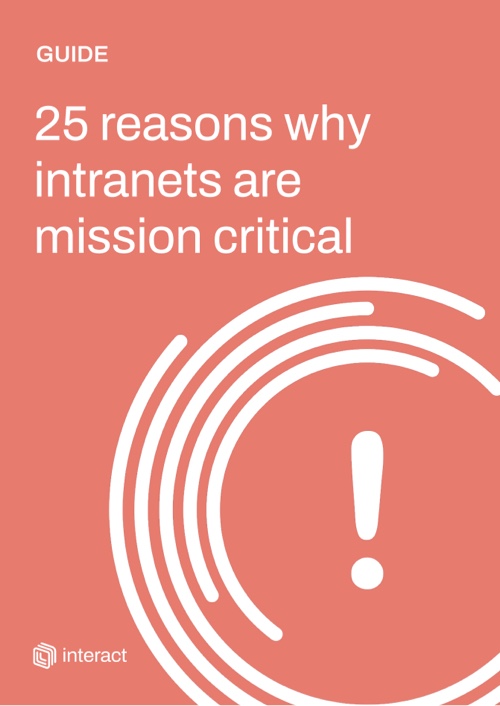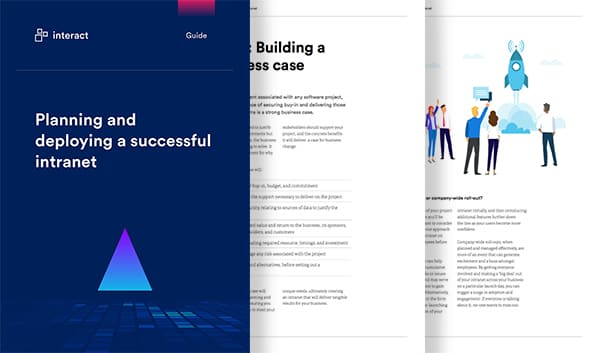How to cut ties: why we need to do exit interviews

Many businesses still don’t understand the importance of positive employee departure. But a worker’s notice period is the ideal time to listen up, right wrongs, and allow the individual to leave on good terms. As business leaders, it’s high time that we realize this approach has a multitude of benefits for both individual and organization.
How well does your business handle goodbyes? The chances are, not great. Research shows that the majority of companies fail to leave things on a good note. According to a study carried out by Gallup, less than half of exiting employees (45%) say they are satisfied with how their organization handled the exit process. Bad blood, misunderstandings, or a simple case of inaction means that last days are often more a case of ‘good riddance’ than ‘stay in touch’.
Many businesses still have to learn that a positive departure can still be a rewarding experience for both parties – as long as it’s managed well.
When a skilled worker announces that they plan to leave, it can have a devastating effect on the organization. Leaders have to manage the morale of team members who have built an emotional attachment with their colleague, there is the loss of knowledge that the worker takes with them, and productivity can dramatically dip.
Of course, businesses work hard not to get into this situation in the first place. Staff retention is one of the key aims for HR, and high turnover of staff equals a considerable cost to the business. The damage can be magnified further if, when saying goodbye to a skilled worker, they replace them with a bad hire.
23 ways your workplace can use a mission-critical intranet to achieve its objectives
It’s expensive to lose people. Which is why, as organizations, we must make sure we keep staff churn low, and for those employees who do choose to leave, we need to find out why – and make sure we learn from these lessons.
When your employee’s mind is made up, it’s important to remember that the best thing you can do as an organization is to make their leaving as positive as possible.
The key component in this is the exit interview. Making sure your organization learns from the reasons people want to leave is essential to the long-term development of the business.
Why are exit interviews important?

In this digitalized world, we’re experiencing a knowledge economy: meaning businesses are becoming more and more dependent on the quantity and quality of information rather than the means of production. This reliance on specialized skills means that employees with expertise are fundamental to an organization’s success.
A skilled employee leaving your business should be treated with the utmost significance. While you may not be able to recover the situation, what you can do is find out the reasons behind your member of staff wanting to leave. These reasons go some way to helping us understand our business’s shortcomings and prevent the same thing from happening again.
Which is why an exit interview is such an important process. It is here that you can source a lot of information on what has made the employee come to the decision to leave. Delving into their experience, allows you to gauge the culture of their department, which helps surface issues that you may not have been aware of.
“Many businesses still have to learn that a positive departure can still be a rewarding experience for both parties – as long as it’s managed well.”
Conversely, an exit interview gives the employee a chance to offload, an opportunity they may not have felt comfortable doing before. This clearing of the air allows them to be listened to and feel that their experience has been taken seriously. So, as well as offering valuable information, they can depart from the organization on a more amicable, more civil note. Leaving on a positive note has added benefits, more of which we’ll go into shortly.
So, what are the secrets to a beneficial exit interview?

An exit interview is only of value if it is managed correctly. At this point, the employee may be completely disengaged, jaded – resentful even. It’s important to leave any workplace politics aside to have a frank, impartial conversation about the reasons that have led up to this point. With this in mind, it is essential to have a few ‘must-dos’ when it comes to holding exit interviews.
Assign someone outside of their line management: in order to reap the most benefits, it’s recommended that someone who is not in direct command of the employee leads the interview. That way, you stand the best chance of a candid and honest conversation with an employee who may be leaving for reasons to do with the people they work closest with.
Ask the right questions: Of course, any one-to-one rests on asking the right questions. In an exit interview, these can reveal patterns in the reasons staff leave and allow you to glean valuable information about your workplace. These questions can include:
- At what point did you decide to leave?
- What made you so unhappy in your role?
- What could we have done to make you stay?
- What would you have changed about your job?
- What does your new job offer that we can’t?
Tailor your questions to the employee’s experience. If their complaints center on one particular issue, you need to find out more. If they weren’t the right fit for your workplace, it might be a good idea to look at the recruitment process. If their complaints focus on an individual or the mores of their department, this could require a look into the cultural health of that team.
Clearly, if it is one person complaining about something within your organization, then it’s perhaps not enough to change that, although an investigation might be a wise move. However, if one particular reason becomes a common theme in your exit interviews, it’s a sure sign that big improvements need to be made quickly.
23 ways your workplace can use a mission-critical intranet to achieve its objectives
Schedule at the right time: The timing of your exit interviews is dependent on a number of things: namely, if the worker is remote or not, when their last day is, whether they have holidays scheduled, etc. Some businesses do their exit interviews after the employee has left; others use third parties to contact the person several weeks – even months – after they have left. While this allows some breathing space, engagement may not be as high when the employee is well established in their new job. But the timing of the exit interview is dependent on several factors, and it’s the role of HR to determine when is right for you and the departing worker.
What can an employee exit interview tell you about your business?

While many businesses treat them like a necessary admin task to tick off the list, an exit interview is much more than a cursory HR process. Managed well and an employee exit interview can offer untold benefits to a business, giving insights into areas of the organization that may otherwise have slipped under the radar. Some things you could learn from holding an exit interview could include:
Flaws in the employee development program: There is a good chance that your employee is leaving due to job title stagnation. Their exit interview should clarify this and give you a greater understanding of whether your employee development is working or not.
Gain insight into management behaviors: It’s one thing knowing your fellow managers, another thing being subjected to their style. When employees are naming their supervisor as one of the reasons for their leaving, it’s well worth the effort to investigate the dynamics of the relationship that the leader has with their team.
Discovering whether you are competitive enough: Employees will always want a pay rise, and it’s up to the business to balance expectations with reality. However, when pay becomes a reoccurring theme, it’s time to sit up and see how you rank against other businesses for the same roles.
Work out other drivers are lacking: Businesses know that salary and perks are two of the biggest influences in making an employee stay or go. However, companies need to see what else keeps staff engaged: whether that is a sense of purpose, variation in their work, flexibility, or something else. Different generational groups have different priorities, so it’s critical for businesses to be mindful of what these are and whether they are providing them.
What do you do with exit interview feedback?

The most important part of the exit interview is the feedback you receive, and it is crucial to manage the observations of your departing staff correctly. When employees know that the sentiments of the leaver are listened to and acted on, they will more likely be co-operative in an exit interview setting, should that time ever arise.
Moreover, organizations can profoundly learn and evolve from what is brought upon these occasions. For the first time, possibly, you have the chance to listen to an employee who feels free to speak truthfully about their experience. They are no longer fearful of repercussions from what they say. Their time at the company is coming to a close. This moment must be captured and what they say taken seriously.
Of course, sometimes, you may have an employee who is not considered a significant loss to the business. They may have been managed adequately, given numerous opportunities and many more chances. Their complaints may outweigh their own conduct and input in their roles. However, on the majority of occasions, exit interviews can act as a great source of information – to how people behave and interact with each other, and how systems and processes may not be working the way they should.
Whatever is brought up, it’s important to take it away and analyze it. Any issues that are divulged must be investigated, and at the very least, the results fed into data that should be studied. Any pattern that emerges can give some indicator as to what action is needed.
In these circumstances, a great deal of impartiality is required, and HR needs to be able to share this data with management throughout the year. Any reoccurring issues should be identified, and a plan of action to counter ongoing problems established. These reviews must be consistent, and worked into senior leadership or board meetings, to give the role of the exit interview the gravity it needs.
The long-term benefits of the exit interview

Many organizations regard exit interviews as a corporate ritual – something they need to fulfill before saying goodbye to the person in question. But like anything worth doing, an exit interview holds long-term advantages for both your business and the outgoing employee. Of course, it’s a great opportunity for the leaver to offload and for you and the organization to learn from their experience. But it can also be a massive benefit to maintaining the relationship between you and the former employee. When you have a highly skilled worker leave, why would you not stay in touch? After all, leaving on a good note can offer great opportunities.
“An exit interview holds long-term advantages for both your business and the outgoing employee.”
The ex-employee may return: if circumstances in your organization change – particularly if the reason for their leaving is no longer there – it could be a good reason to invite the worker back with a revised deal. If that person holds enough value to your company, it is worth reviewing what you can offer them: a salary raise, a promotion, more employee perks. After all, when they know how your business works, it saves you time and money compared to the cost of hiring someone brand new.
23 ways your workplace can use a mission-critical intranet to achieve its objectives
The ex-employee could provide good PR: Businesses strive to present themselves as an ideal place to work. And when an ex-employee has a good experience leaving your organization, this can provide powerful PR when they recommend your workplace to others. A former employee acting as an advocate for your company speaks volumes. When so many company departures are negative, having someone who once worked for you saying positive things about your organization is an incredibly powerful asset.
It sends a good message out to others: When colleagues and peers have a link with their old place of work, it speaks volumes. After all, many relationships sour after an employee leaves. So, it’s refreshing to hear that some organizations are able to manage the departure of an employee in a mature, civilized manner, rather than the traditional door slam.
How to make exit interviews a permanent fixture

With so many benefits, why are exit interviews so underused? Many businesses have a tricky time dealing with the last few weeks of an employee’s tenure. With so much time spent finding a replacement, managing handovers, welcoming the new recruit, and all the associated admin, little thought is given to the departing employee.
In fact, the notice period can often feel like an endurance test, where bad will increases, and productivity grinds to a halt. Combatting this requires some work, but can create so many advantages for both employee and business.
“While a leaving employee will always carry a cost to the business, exit interviews and a friendly goodbye can stem that flow. “
While primarily the responsibility of HR, it also falls upon the managers and senior leaders – as direct supervisors – to make sure the foundations for a positive exit experience are in place. This can be done through effective communication, regular one-to-ones, and conflict resolutions.
While a leaving employee will always carry a cost to the business, exit interviews and a friendly goodbye can stem that flow. Maintaining the relationship post-departure can be transformative for an organization, creating great employee advocacy, brand PR, and could even help to reduce staff turnover. Like any relationship, when you finish more informed and feeling listened to, it could be the first step on a new, more positive journey.

